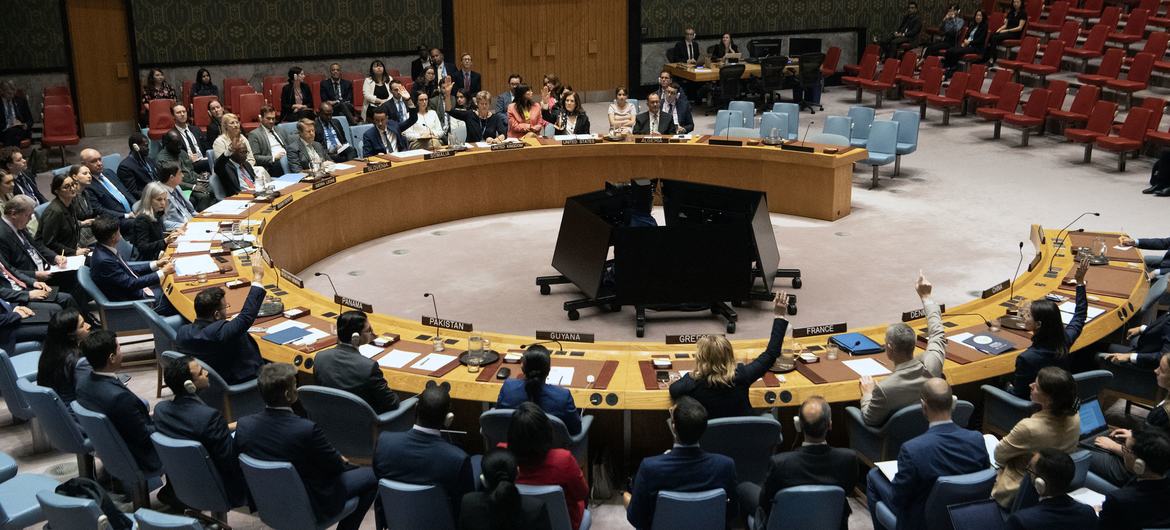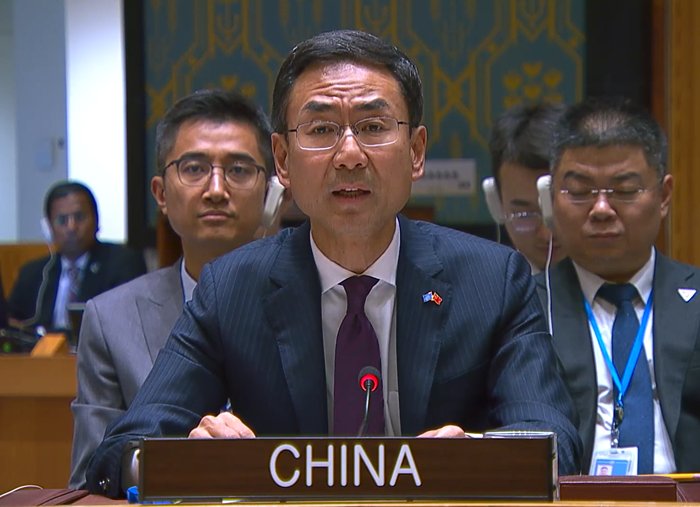
UNITED NATIONS - China regrets the United Nations Security Council's failure to extend the 2015 Iran nuclear deal, said a Chinese envoy on Friday.
The Security Council failed on Friday to adopt a resolution drafted by China and Russia that would have extended the nuclear deal between Iran and the six major countries of Britain, China, France, Germany, Russia and the United States, as well as Security Council Resolution 2231 that endorsed the deal, for six months. It would have also prevented a "snapback" of UN sanctions against Iran.
Explaining Friday's vote, Geng Shuang, China's deputy permanent representative to the United Nations, said his country was deeply disappointed at the result.
"The current situation has reached a critical juncture. We call on all parties to exercise calm and restraint, continue dialogue and engagement, handle the current predicament prudently, and avoid escalating tensions," said Geng.
Britain, France and Germany - the three European countries (E3) of the Iran nuclear deal, formally known as the Joint Comprehensive Plan of Action (JCPOA) - claimed they have triggered the snapback mechanism on Aug 28 by notifying the Security Council of Teheran's "non-performance".
Under Resolution 2231, the UN sanctions in place before the resolution's adoption would resume 30 days after the notification, unless the Security Council adopts a resolution to decide otherwise. The Sept 19 draft resolution to that effect failed.
However, the legality of the three countries' move has been questioned as it has skipped the Dispute Resolution Mechanism (DRM) provided for in the JCPOA and Resolution 2231.
ALSO READ: Iran vows fitting response to E3 threat of nuclear sanctions snapback
Under the JCPOA and Resolution 2231, the DRM has 35 days to resolve the disagreement. A snapback can be triggered only after the DRM fails to resolve the issue.
Resolution 2231 expires on Oct 18, 2025, after which time the Security Council would stop considering the Iran nuclear deal.
Against the backdrop of the ongoing conflict in Gaza and broader instability in the Middle East, "We urge the United States to demonstrate political will by responding positively to Iran's proposal to resume talks and committing unequivocally to refrain from further military strikes against Iran," Geng said.

China also urges the E3 "to abandon its approach of pushing for sanctions and coercive pressure against Iran", Geng added.
The unconditional return of the original signatories to the JCPOA to the negotiating table would facilitate a political settlement, said Geng. "All parties should engage in dialogue based on mutual respect and on equal footing, striving to find the greatest common denominator that accommodates the legitimate concerns of all sides. The Security Council should play a constructive role in helping relevant parties rebuild trust and bridge differences," he added.
ALSO READ: China urges ceasefire and dialogue on Iran nuclear issue at UN
The core objectives and purposes established by the JCPOA and Security Council Resolution 2231 should not be abandoned. The key principles of a step-by-step and reciprocal approach and balancing the rights and obligations remain valid, he said.
Iran should continue to honor its commitment not to develop nuclear weapons. All other parties should fully respect Iran's right to the peaceful use of nuclear energy as a signatory to the Nuclear Non-Proliferation Treaty, he said.
As a party to the JCPOA, China has been committed to the goal of nuclear non-proliferation by firmly upholding the authority, effectiveness and integrity of the JCPOA and promoting a faithful implementation of the agreement by all parties, said Geng.
Following the US withdrawal from the JCPOA in 2018 and in the face of the current impasse on the Iran nuclear issue, China has actively promoted dialogue and engagement among all parties, playing a positive and constructive role in resolving differences through negotiations, he added.
"I wish to reiterate that China's solid commitment to safeguarding international peace and security remains unchanged. Its political will to seek a political settlement on the Iran nuclear issue remains unwavering. Its diplomatic efforts to promote dialogue and cooperation among all parties will not be relaxed," said Geng.
READ MORE: Iranian president meets European leaders, says ready to address nuclear concerns
Together with all parties, China stands ready to maintain an objective and impartial position in continuing its unremitting efforts toward a comprehensive political solution to the Iran nuclear issue, he said.


